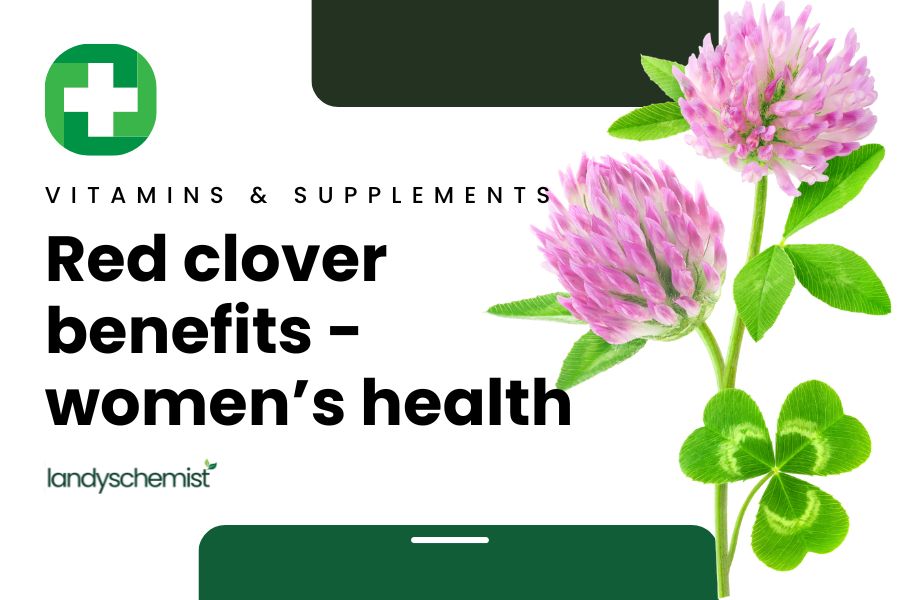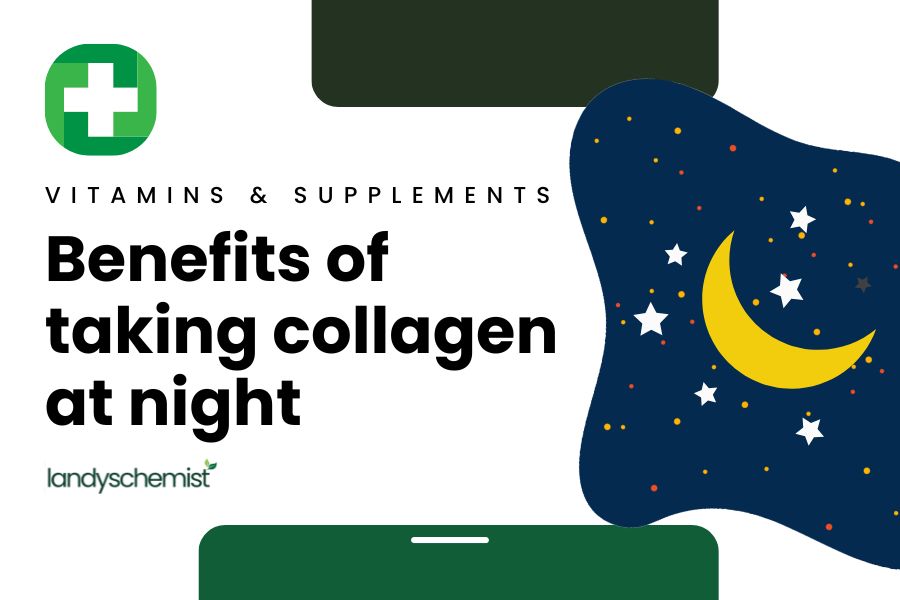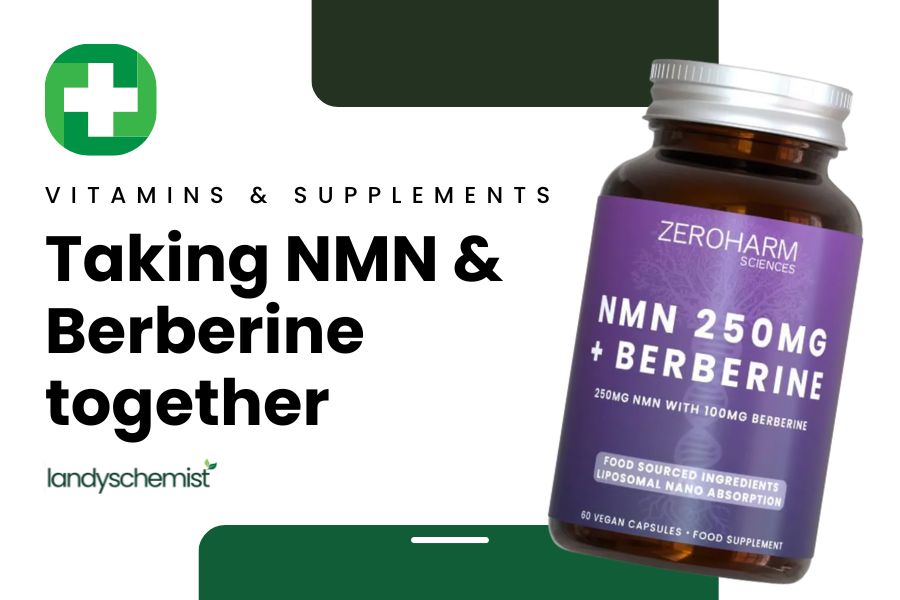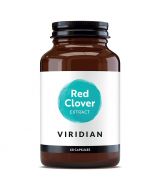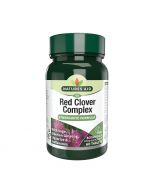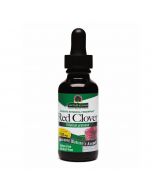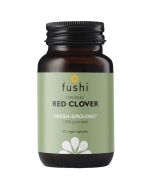
The benefits of taking Red Clover
Red clover is a herb rich in isoflavones which mimic oestrogen that may help ease menopausal hot flushes and night sweats when taken in standardised amounts. Some studies also suggest benefits for cardiovascular health and signals for bone support, although results vary. Red clover tea is gentle and pleasant, but it does not deliver the same studied doses as standardised capsules.
Red clover is not suitable in pregnancy or breastfeeding. Seek medical advice if you have a hormone-sensitive condition or take anticoagulants or hormone replacement therapy (HRT).
“For women exploring a natural, non-HRT route for hormone balance, I usually look for a standardised red clover extract delivering 40 to 80mg isoflavones daily, then review progress at 8 to 12 weeks.” Mitesh Desai, Nutritionist at Landys Chemist
Key Takeaways
- Red clover may modestly reduce hot flushes and night sweats in some women. Sage has stronger evidence for menopause hot flushes, read more here
- Shows signals for supporting bone strength and keeping blood vessels flexible
- Evidence for skin, hair, mood and respiratory health is promising but early
- Best results seen with standardised capsules (40–80 mg isoflavones daily), not tea
- Not suitable during pregnancy or breastfeeding, and requires caution with HRT or anticoagulants
Resources:
- The Complete Guide to Menopause | Landys Chemist
- Herbal remedies and complementary medicines for menopause symptoms | NHS
- Shop Natural Menopause Supplements | Landys Chemist
- Essential Vitamins & Supplements for Menopause
Benefits of red clover
The strongest human data sit with hot flushes and cardiovascular health. Evidence for bone, skin, hair, mood and respiratory outcomes is promising but mixed or early.
Menopause & Hormonal balance
Systematic reviews and randomised trials show small to moderate reductions in hot flushes with standardised red clover extracts, although results are mixed and product-specific. Expect any benefit, if it occurs, after 8 to 12 weeks.
Heart & Circulation Health
Several placebo-controlled trials report improved circulation in postmenopausal adults, which is a favourable vascular marker. Blood pressure usually does not change, so this is not a treatment for hypertension.
Bone Health
Individual trials suggest possible support for bone mineral density or bone turnover in menopausal women. Findings are inconsistent, so treat bone benefits as provisional.
Skin and Hair support
One crossover RCT in postmenopausal women reported self-rated improvements in skin and scalp hair after 90 days of 80 mg red clover extract. Evidence is limited and largely subjective.
Respiratory Health
Traditional use includes coughs and bronchitis. Modern clinical evidence is sparse, and current support is mainly laboratory based, so this should be considered preliminary.
Mood and sleep
Small clinical data sets suggest improvements in mood scores in some women taking 80 mg isoflavones. More research is needed to confirm effects on sleep quality.
Dose and how to take it
Typical dosage range:
The National Centre for Complementary and Integrative Health (NCCIH) state that, “Red clover extracts have been used in clinical studies for as long as 2 years with apparent safety, and they appear to be well tolerated.”
|
Form |
Typical dose studied |
Notes |
|
Capsules/Tablets |
40–80mg isoflavones daily |
Most reliable; standardised extracts used in trials |
|
Tea |
Variable, usually <10 mg per cup |
Pleasant but not equivalent to studied doses |
|
Tincture/Liquid Extract |
Check label – varies widely |
May be useful if you dislike capsules; look for standardised isoflavone content |
Side effects and safety
Most people tolerate red clover well, but nausea, headache or muscle aches can occur. Do not use it in pregnancy or while breastfeeding. Because of phytoestrogen activity and possible effects on clotting, seek medical advice if you take anticoagulants or antiplatelet medicines, if you plan to combine with HRT, or if you have a history of hormone-sensitive cancer. Red clover also contains natural coumarins, so there is potential for interaction with blood thinners.
Summary
While the research on red clover is mixed, it remains a safe option for many women to explore under the right guidance. Some may find relief from hot flushes, mood changes or skin concerns, while others may notice little difference. What matters most is consistency, realistic expectations, and choosing a product that is properly standardised.
“Red clover will not be a miracle fix for everyone, but for some women it can provide gentle support during menopause. When used thoughtfully, alongside lifestyle changes and with medical advice where needed, it offers a natural option worth considering.” says Mitesh Desai
References:
- Red Clover: Usefulness and Safety | NCCIH
- Isoflavones from red clover improve systemic arterial compliance but not plasma lipids in menopausal women - PubMed
- Menopausal Symptoms: In Depth | NCCIH
- Evaluation of Clinical Meaningfulness of Red Clover (Trifolium pratense L.) Extract to Relieve Hot Flushes and Menopausal Symptoms in Peri
- Isoflavone therapy for menopausal flushes: a systematic review and meta-analysis
- Intake of Novel Red Clover Supplementation for 12 Weeks Improves Bone Status in Healthy Menopausal Women - PMC
- Effect of Red Clover Isoflavones over Skin, Appendages, and Mucosal Status in Postmenopausal Women - PMC
- Red Clover Extract - an overview | ScienceDirect Topics
- Red Clover: Usefulness and Safety | NCCIH
Red clover benefits FAQs
Does red clover increase oestrogen?
Isoflavones have weak oestrogen-like activity and may ease vasomotor symptoms in some women. They do not act like prescribed HRT.
Does red clover cause weight gain?
There is no strong evidence from clinical trials that standardised red clover causes weight gain. Most studies report no meaningful change in body composition.
Does red clover lower blood pressure?
Not consistently. Trials show better arterial compliance, but blood pressure often stays the same.
Can you take red clover with HRT?
Only with specialist guidance. Combined use may not be appropriate for everyone due to additive hormonal effects and drug interactions.
Who should not take red clover?
Avoid during pregnancy and breastfeeding. Seek medical advice first if you have, or had, breast, uterine or ovarian cancer, if you take anticoagulants, or before surgery because of possible bleeding risk.
Is red clover good for men?
Evidence is limited. A small study in men with raised PSA found a reduction in PSA with 60 mg isoflavones over 12 months, alongside increased liver enzymes. Larger trials are needed.
Which is better - Red clover supplement or tea?
Tea is a gentle option but contains variable isoflavone levels. Use standardised capsules or tablets if you want the doses used in trials.
Medically Reviewed & Authored By
This article was medically reviewed by Girish Desai, Chief Pharmacist at Landys Chemist since 1982 (GPhC Reg. No. 2019217).
Written and compiled by Rhysa Phommachanh, Head of Digital at Landys Chemist and specialist in health and wellbeing content strategy.
Disclaimer: This content is grounded in research and expert pharmacy and nutrition knowledge to ensure accuracy and relevance.

